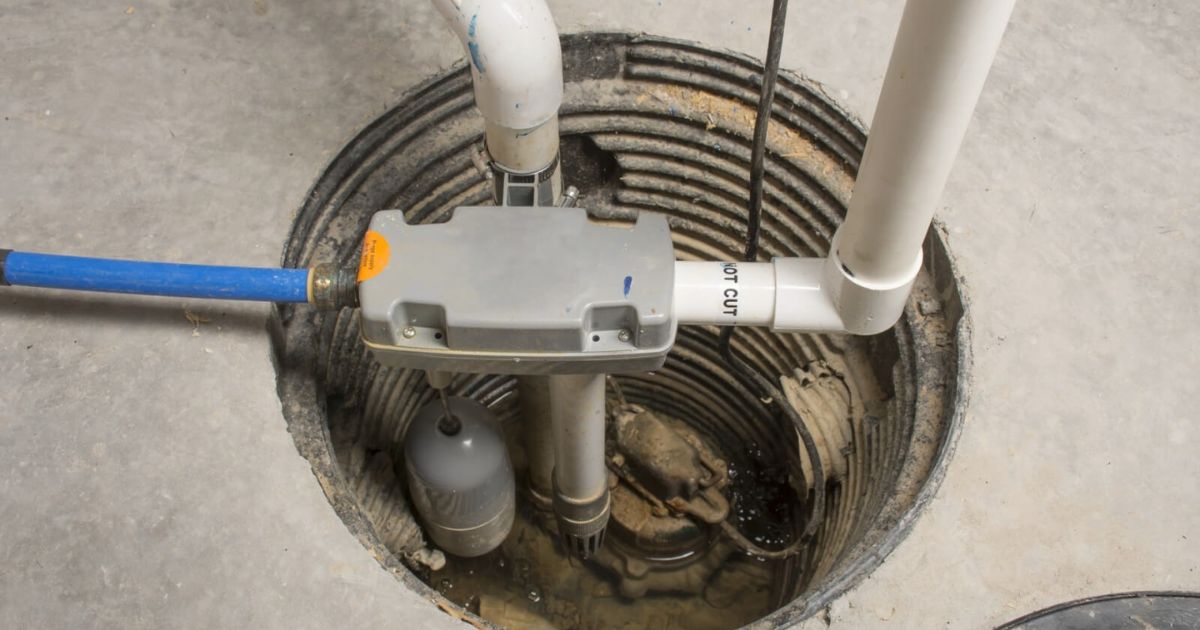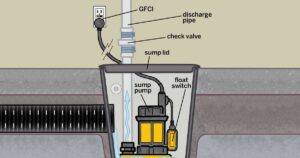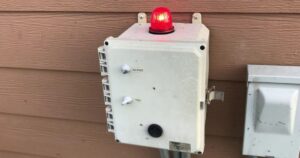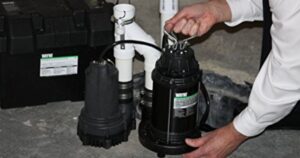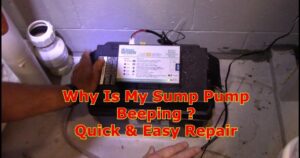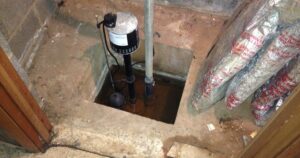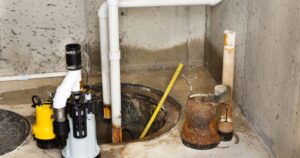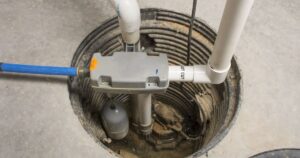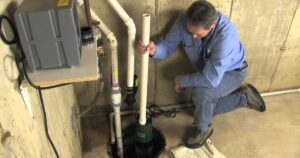In the world of sump pumps, the question often arises: can I dump water in my sump pump? Like a delicate balance of nature, the proper usage of sump pumps is crucial for safeguarding our homes from water damage. However, venturing into the territory of dumping water into these mechanisms can lead to unforeseen risks. Join us as we explore the importance of responsible sump pump usage, the dangers of improper water disposal, and alternative methods to maintain a dry and secure environment.
Key Takeaways
- Regularly test and maintain your sump pump to avoid potential flooding and water damage.
- Avoid dumping water into your sump pump to prevent overloading, backflow, clogging, and corrosion risks.
- Explore alternative methods for water disposal such as water recycling and rainwater harvesting to contribute to sustainable water management practices.
- Schedule regular inspections, clean the pump, and address any blockages or common problems promptly to ensure proper functioning and extend the lifespan of your sump pump.
Importance of Proper Sump Pump Usage
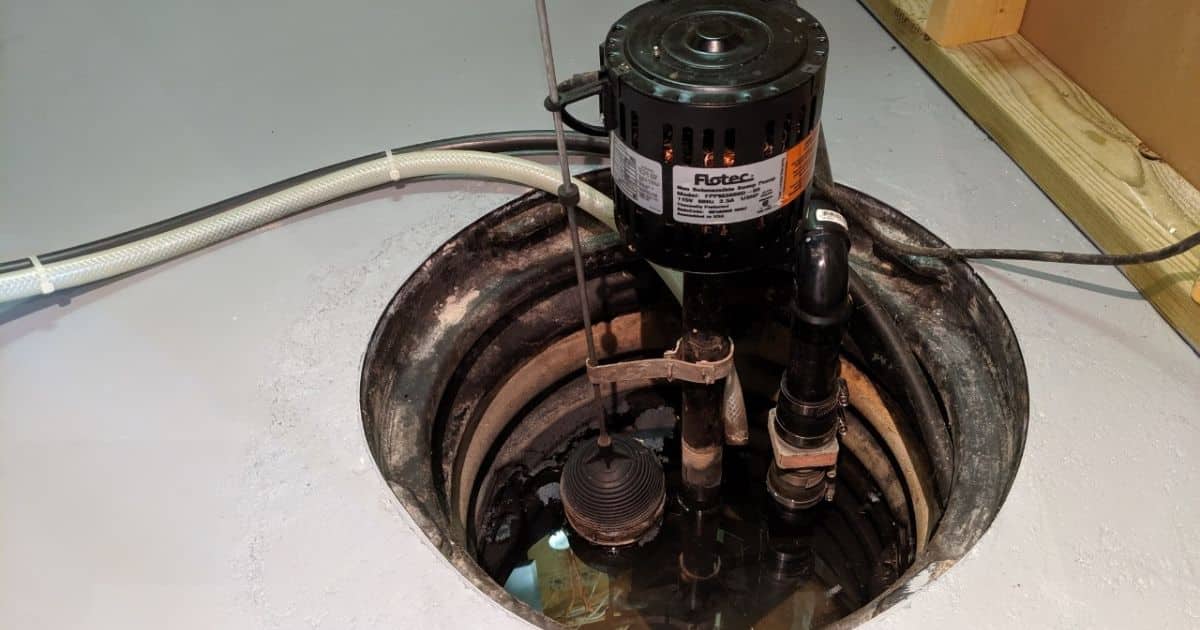
The proper usage of a sump pump is crucial for effectively managing water accumulation in the basement or crawl space of a property. Common sump pump problems include power failure, clogged discharge lines, and switch malfunctions. To address these issues, homeowners should regularly test their sump pumps, clean out debris from the pit, and ensure the Sump Pump Discharge Pipe is clear. Additionally, installing a backup sump pump can provide added protection in case of primary pump failure or excessive water inflow.
A backup sump pump can be battery-powered or water-powered, providing a reliable solution during power outages or overwhelming water conditions. By taking these preventive measures, homeowners can avoid potential flooding and water damage. However, it is important to note that dumping water into the sump pump can lead to further complications, as we will discuss in the next section.
Risks of Dumping Water Into Your Sump Pump
Dumping water into your sump pump can result in serious damage and potential system failure. While it may seem convenient to dispose of excess water in this way, it is important to understand the risks associated with such actions. By dumping water into your sump pump, you expose it to potential damages that can compromise its functionality and longevity. Here are some of the potential damages that can occur:
| Risks | Potential Damages |
|---|---|
| Overloading the pump | Burnout of the motor or damage to the impeller |
| Backflow of water | Flooding of the basement or damage to the pump itself |
| Clogging the pump system | Reduced efficiency or complete failure of the pump |
| Corrosion of pump parts | Deterioration of components leading to malfunction |
To prevent these risks and ensure the proper functioning of your sump pump, it is crucial to explore alternative methods for disposing of water.
Alternative Methods for Disposing of Water
To properly dispose of water without risking damage to your sump pump, consider utilizing alternative methods. Water recycling and rainwater harvesting are two effective ways to manage excess water in a safe and environmentally-friendly manner. Water recycling involves treating and reusing wastewater for various purposes, such as irrigation or industrial processes. This method not only reduces the demand for freshwater resources but also minimizes the amount of water that needs to be disposed of.
On the other hand, rainwater harvesting involves collecting and storing rainwater for future use. This can be done through the use of rain barrels or more complex systems like underground cisterns. By implementing these alternative methods, you can effectively manage water disposal while contributing to sustainable water management practices.
Steps to Maintain Your Sump Pump Effectively
To effectively maintain your sump pump and prevent issues such as pump failure or water leakage, it is essential to follow a series of steps that will ensure its proper functioning and longevity, particularly when dealing with “Water in Sump Pump“. First and foremost, it is crucial to ensure that your sump pump is installed correctly. Improper installation can lead to various issues. It is recommended to hire a professional for the sump pump installation to ensure it is done correctly.
Regular maintenance is also crucial for extending the lifespan of your sump pump. This includes checking and cleaning the pump’s inlet screen regularly to prevent clogs, inspecting the discharge pipe for any blockages or leaks, and testing the pump’s float switch to ensure it is working correctly.
Additionally, it is important to test your sump pump periodically to ensure it is functioning properly. This can be done by pouring water into the sump pit and observing if the pump activates and removes the water efficiently.
Expert Tips for Sump Pump Maintenance and Troubleshooting
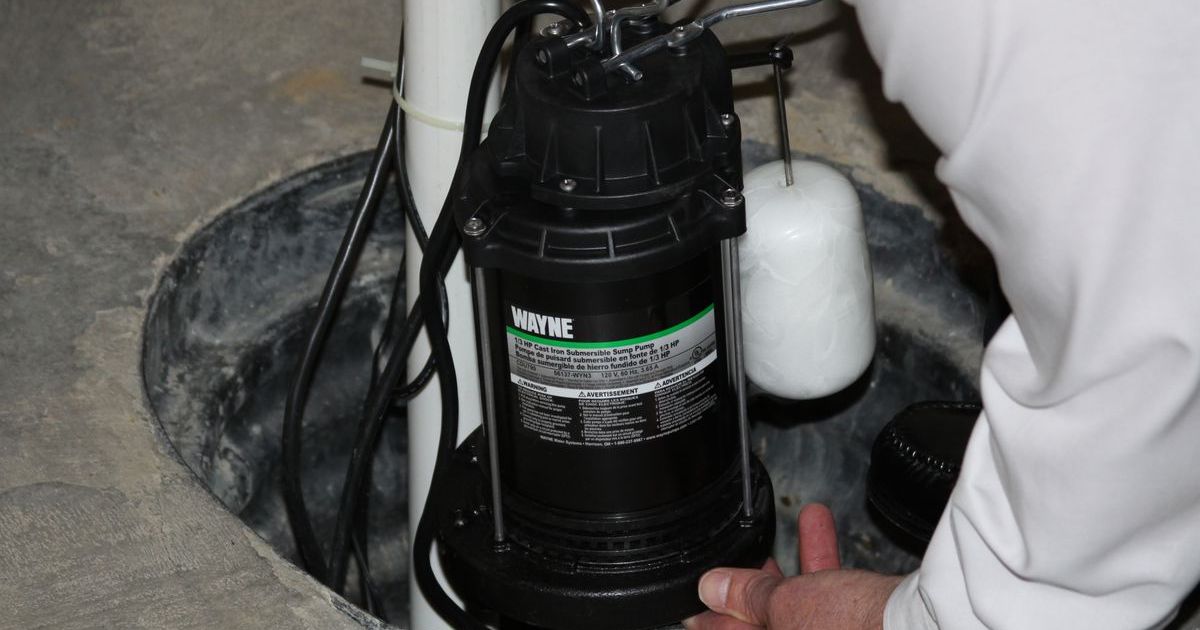
When it comes to maintaining and troubleshooting your sump pump, following expert tips is essential for ensuring its optimal performance and longevity. Here are some expert tips for sump pump maintenance and troubleshooting:
- Regular maintenance: Schedule regular inspections and maintenance to keep your sump pump in good condition. Clean the pump and remove any debris or sediment that may have accumulated.
- Test the pump: Test your sump pump regularly to make sure it is functioning properly. Pour water into the sump pit and check if the pump starts automatically and removes the water efficiently.
- Check the discharge pipe: Inspect the discharge pipe to ensure it is properly connected and free from any blockages. A blocked discharge pipe can cause water to back up into the sump pit.
- Address common problems: Be aware of common sump pump problems such as a malfunctioning float switch, a clogged impeller, or a failing motor. Regularly check these components and address any issues promptly to avoid potential failures.
Following these expert tips will help you keep your sump pump in good working condition and avoid costly repairs or replacements.
FAQ’s
Can I Use My Sump Pump to Remove Sewage or Wastewater?
Using a sump pump for pool drainage is acceptable, but it should not be used to remove sewage or wastewater. It is important to follow sump pump maintenance tips to ensure optimal performance and prevent damage.
What Should I Do if My Sump Pump Is Making Loud Noises?
If your sump pump is making loud noises, it may indicate a problem. Troubleshooting tips include checking for debris, inspecting the float switch, and ensuring proper maintenance. Following a maintenance checklist can help prevent future issues.
How Often Should I Test My Sump Pump to Ensure It Is Functioning Properly?
To ensure proper functioning of your sump pump, it is recommended to test it periodically. Testing frequency may vary, but conducting tests at least once a year is advisable. Regular testing helps identify early signs of sump pump failure and allows for timely maintenance or replacement.
Is It Necessary to Have a Backup Sump Pump System?
Having a backup sump pump system, such as a battery-operated one, can provide peace of mind in case of a power outage or primary pump failure. Regular maintenance is crucial to ensure longevity and proper functioning.
Can I Use My Sump Pump to Remove Standing Water in My Yard or Basement?
A sump pump is typically not designed to handle large volumes of water from outdoor sources, such as swimming pools or landscaping projects. It is best to consult with a professional for alternative solutions to remove standing water in these scenarios.
Conclusion
In conclusion, it is important to avoid dumping water into your sump pump as it can lead to various risks such as damage to the pump and potential flooding. Instead, consider alternative methods for disposing of water such as using a drain pipe or a separate pump. Regular maintenance and troubleshooting are also crucial to ensure the effective functioning of your sump pump. According to a survey conducted by HomeAdvisor, 50% of homeowners neglect proper sump pump maintenance, increasing the risk of basement flooding.
